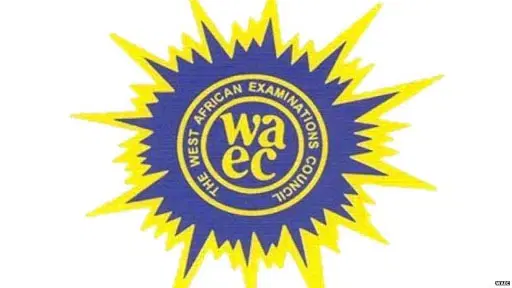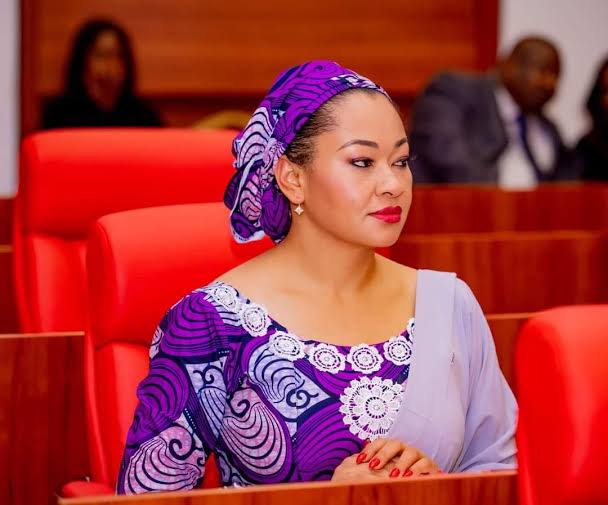Nigerians are facing hydra-headed challenges on all fronts: debilitating insecurity, extreme poverty, hyperinflation, high cost of food and essential consumables, diminishing trust in government and its institutions at all levels, and worse, there is no clarity on the way forward. Everyday quality of existence for the average Nigerian is depreciating, and people are quickly bemoaning their fate and hoping for salvation- both spiritual and physical . The level of disillusionment is mindboggling, and most Nigerians are perplexed.
This situation is made worse by the increasing economic uncertainties, the fallout of global pandemic, and historical neglect of development antecedents by Nigerian leaders who have failed to listen to and work for the over 90% of ordinary Nigerians struggling to eke a living daily ,irrespective of the economic and security quagmire that have befallen the country.
In recent times, the continuous rise in the price of LPG gas (cooking gas) exemplifies everything wrong with Nigeria’s ecosystem and why our economic handlers should make a deliberate effort to create an atmosphere of optimism. Cooking gas is symbolic because it represents a product that many Nigerians, especially those living in urban and semi-urban areas, need for everyday cooking. Nigeria has it in abundance – 9th largest reserve (about 207 trillion standard cubic feet as at 2019), and it is a source of clean energy that Nigeria is advocating for many of its citizens to change to. Aside from being used as cooking fuel, it is used to power appliances, power some vehicles, and some small businesses depend on gas. Whatever happens to gas (LPG) affects almost all families one way or the other. To show the shift that has taken place, in 2008, Nigeria needed only 40-50,000metric tons of gas, but today the total annual requirement is about a 1.3million metric tons, a growth of over 2000 per cent.
READ ALSO: Poly student Chidinma stabs boyfriend over WhatsApp chats with another girl
The price of cooking gas has more than doubled in the last one year. Granted that the rising LPG prices are a part of a general escalation of other daily living costs: gasoline pump prices, electricity tariffs, basic prescription drug prices and urban mass transportation, It forms part of the determinants of the escalating living costs and declining living standards. It will be pretentious not to acknowledge that this rise in living costs, shrinking of the purchasing power of average middle income and low-income families and constant erosion of the value of the Naira is responsible for the current atmosphere of discontent and may result in an implosion if not checked.
To establish the fundamentals that led to the increase in the price of cooking gas, I need first to set some clear facts about the micro and macroeconomics of LPG gas in Nigeria and global trends that impact the LPG sector.
First, Nigeria gets a little over 450,000 metric tons of LPG from its liquefaction company, the NLNG, co-owned with the nation by three international oil companies, while the actual domestic demand stands at 1.3million metric tons, a shortfall of 850,000 metric tons. These 450,000 metric tons of LPG represents about 100% of its Butane production (Butane gas is less volatile and is suitable for cooking). And by committing 100% of its Butane production, NLNG posit that it has prioritised the domestic market, thus realised its domestic supply target, whilst still focussed on the exportation of the 22 million Tonnes Per Annum (MTPA) of Liquified Natural Gas (LNG) and 5 MTPA of Natural Gas Liquids (NGLs) it produces given its current capacity. At the same time, several Nigerian upstream operators are setting up LPG extraction plants to cut down gas flaring and monetise gas.
Second, NLNG supplies 40% of domestic demand. The balance is provided through other domestic producers or via imports. Therefore, NLNG’s production alone is not sufficient. Over one million metric tonnes of LPG were consumed by Nigerians in 2020, with over 50 per cent of the product imported by marketers. The implication is that we are a net importer of LPG and exposed to the vagaries of market forces and traders’ insatiable appetite for profit.
Third, LPG is a product priced in the international market. The vagaries of the price fluctuations in the global market affect the price of domestic LPG because over 50% of LPG sold in Nigeria are imported from abroad and priced in US Dollars. Prices of gas keep soaring at the international market with consequential impact on the local market. Between January 2021 and August 2021, the prices of 5kg and 12kg cylinders of gas rose by nearly 300%.
Fourth, the exchange rate regime and the valuation of Naira against the USD impact directly on the price of LPG in the domestic market. NLNG, through the export of LNG and NGL abroad, gets the much-needed foreign exchange for the country, whilst the import of LPG by independent marketers depletes the foreign reserve and may have a negative balance of payment implications.
Fifth, just as any other product in the market, the forces of demand and supply and other macro-economic policies like VAT, logistics and profit margin , directly and indirectly, affect the movement of the price of LPG in the Nigerian market.
A quick analysis of the above facts reveals that LPG is a product that opens itself to influences both local and international and almost has an inelastic demand structure because of its importance. An increase in its price does not produce a radical shift in the quantity demanded of it. Although LPG is souring in price, many Nigerians are left with little choice than to still buy it with significant unintended budgetary implications and resultant deprivation of the opportunity cost because of the increase in prices.
Some of these facts are changing with time and new realities because of new government policies that are helping increase production through independent gas producers (eliminating gas flaring) and expansion of the Train 7 project to increase capacity to produce more gas for the country. It is essential to look at the leading causes of the persistent increase in LPG prices in recent times.
One major cause of the increase in the price of LPG is just the interplay of forces of demand and supply. The demand for LPG globally significantly increased as activities returned to near normal post-Covid 19 lockdowns and restrictions. However, in Nigeria, there is also the trend that has seen a tremendous increase in people switching to LPG as a cleaner energy source than other local alternatives. This trend has seen the demand for LPG in Nigeria more than double in the past two years, without corresponding increases in local supply. The difference is made up through importation.
The second reason is more macroeconomic in nature. As I pointed out above, LPG is imported with USD. In Nigeria, the value of USD is increasing against the Naira. In the parallel market last week, Dollar rose to above N570. The implication is that even when imported at the same international price because the Naira has depreciated, the price will reflect the current exchange rates.
Furthermore, significant stakeholders in the sector allege that importers, depot owners and the Federal Government were complicit in the continuous rise of LPG price through price-fixing, reintroduction of Value Added Tax, exorbitant landing cost and levies, as well as dollar scarcity and devaluation of the Naira. The importers will embed expenses incurred into the price it sells LPG to the marketers at the depots and terminals. These expenses are passed on to end-users of the product.
Depot owners, on their part, indirectly engage in price-fixing. They sell the locally sourced LPG from the NLNG and the imported LPG at the same price. Even the locally sourced LPG from different parts of Nigeria is still sold at the international price. The cost of 20MT of LPG moved from N3.5m in January 2021 to N8m in August 2021. The vendors are using this opportunity to make a quick money at the expense of the people.
The Federal Government reintroduced the 7.5% VAT on LPG in 2021, when other factors make LPG very exorbitant. The VAT added pushed the price up even further. Finally, the local production end of LPG is not helping matters (NLNG and marginal producers prefer to export than sell to the local market). We may not blame them because Nigeria needs the foreign exchange earning to boost our foreign reserve to give the Naira a fighting chance against the Dollar.
This persistent increase in the price of LPG and other essential commodities may have dire consequences for many Nigerians. It may lead to a socio-economic crisis as people are gradually feeling frustrated over their plight. A cloud of discontent is slowly gathering, and I hope it does not lead to significant social dislocation. The price spike must not be allowed to continue. Government should take deliberate policy and regulatory steps to check the rising cost of gas.
In developed parts of the world, their governments actively protect and cushion the impact of rising gas prices on vulnerable citizens. Many European countries have intervened using different models based on their circumstances and economic leverage.
I will advocate that given the importance of LPG in the lives of the people and the critical role it plays as a clean energy source in Nigeria, the government must be proactive to deepen this sector and develop it for the country’s benefit. Government should explore different mitigation options, and this will be determined by the general relief windows for public welfare in the system and the extent of the government’s leverage in the economy in terms of control of consumer price mechanism.
In conclusion, rising cooking gas prices, combined with underemployment or unemployment, declining purchasing power for individuals will compound the inflationary pressure the average Nigerian has been subjected to on all fronts. A prolonged rising price of essential items needed in households could have social consequences and often worsens economic hardship and is an unintended invitation to public unrest and chaos. Many families in Nigeria today are walking on the street named ‘hopelessness’. Let our leaders and policymakers be more sensitive and responsive before the public reacts and starts asking questions for which the answers will either be coming too late or will make no meaning to a people under the heavy yoke of unbearable economic hardship. The purchasing power of the Nigerian middle and low-income families has shrunk dramatically. Any additional spike in prices of essential items will mean mocking the common man and watching him dance to his grave. No economic calculation, policy, or strategy, in this case, will make any meaning. For many Nigerian families, a life of constant erosion of the value of the Naira and its non-availability has pushed them from living mode to survival mode, and nobody seems to care.
Advertisement






